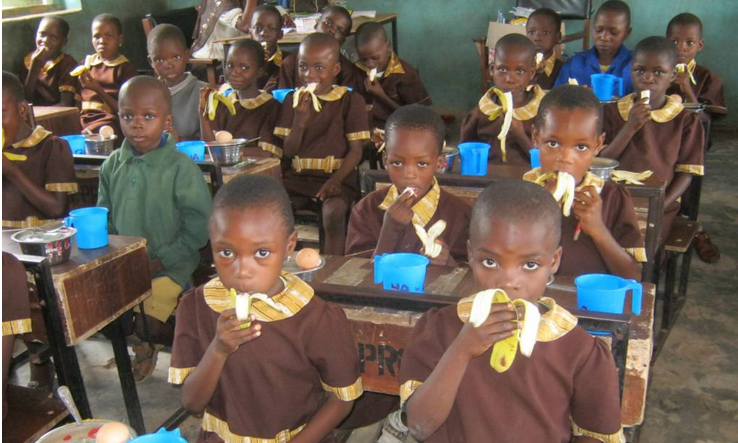This week, Farming First attended a panel event hosted by the All Party Parliamentary Group on Agriculture and Food for Development at the Houses of Parliament. The event explored recent developments in research, policy and programming for Home Grown School Feeding projects in the developing world.
“When the drumbeat changes, the dance must also change”. This opening remark from Ms. Boitshepo Bibi Giyose, Senior Food & Nutrition Security Advisor for the African Union set the scene for discussion on Home Grown School Feeding – a programme that has been adapted and revitalised to meet a new demand.
In recent years, traditional school feeding programmes that rely on food aid to provide meals for children in schools, have been replaced by programmes that source their food from local smallholder farmers. Dubbed a “virtuous circle”, this new approach has been described as a win-win for children and farmers alike as it improves nutrition and educational outcomes for children whilst at the same time securing farmer livelihoods and access to markets.
According to panellist Professor Donald Bundy, a health and education specialist for The World Bank, this renaissance in school feeding programmes occurred after a crisis response report written by The World Bank in 2008 discovered that school feeding programmes were one of the highest priority areas for people living in low income countries. Citizens were calling for a system that would not only act as a social safety net, but was self-sufficient and long term, that relied on local food producers for food and not donors. “School feeding can provide a structured demand for local agriculture”, Professor Bundy commented.
As an example of the impact that a robust Home Grown School Feeding can have on a community, panel member H.E. Engr. Rauf Aregbesola, Governor of the Osun State of Nigeria, spoke of his first hand experience implementing the “O-Meals” programme, that provides free, healthy meals for primary school children. Within 15 months of implementation, school enrolment in Osun jumped 40%. 3,000 women have been employed as food vendors to serve meals in the school and 1,000 farmers have been trained to improve their production of cocoyam.
Peter Rodriguez, Senior Programme Advisor for the World Food Programme commented on the economic sense that Home Grown School Feeding projects make. “We estimate that for every $1 spent by governments and donors, WFP estimates at least $3 is gained in economic returns.”
Five ways to make Home Grown School Feeding work
1. Legislate
The panel attributed the success of Brazil’s school feeding programme to legislation that was written, to ensure 30% of all food served at schools must be locally sourced. If it is written in the law, it must be abided by.
2. Be transparent
To ensure government and donor funds are indeed transformed into food in children’s bellies, eliminating corruption was a key priority for the panel. The computerised transfer of money that bypasses a human intervention was suggested as the best way to address this issue.
3. Consider nutrition
Panellist Dr. Josephine Kiamba of the Partnership for Child Development highlighted the importance of nutrition in school meals, to combat stunting and illness in young children caused by micronutrient deficiencies. A meal planning tool has been piloted in Ghana, which visualises the nutrients available in a set meal, and will highlight missing food groups or vitamins.
4. Integrate other health interventions
Nutritious food will not serve children who suffer from diseases caused by poor sanitation or worms. Coupling a school feeding programme with hygiene workshops and de-worming programmes will ensure an integrated and holistic approach to child health.
5. Partner up
Governments and donors must partner with private sector and NGO partners who can bring a range of expertise to the table, and will also ensure mutual accountability for the success of a school feeding programme.
Photo credit: GOV. AREGBESOLA’S O-MEALS School Feeding Programme



